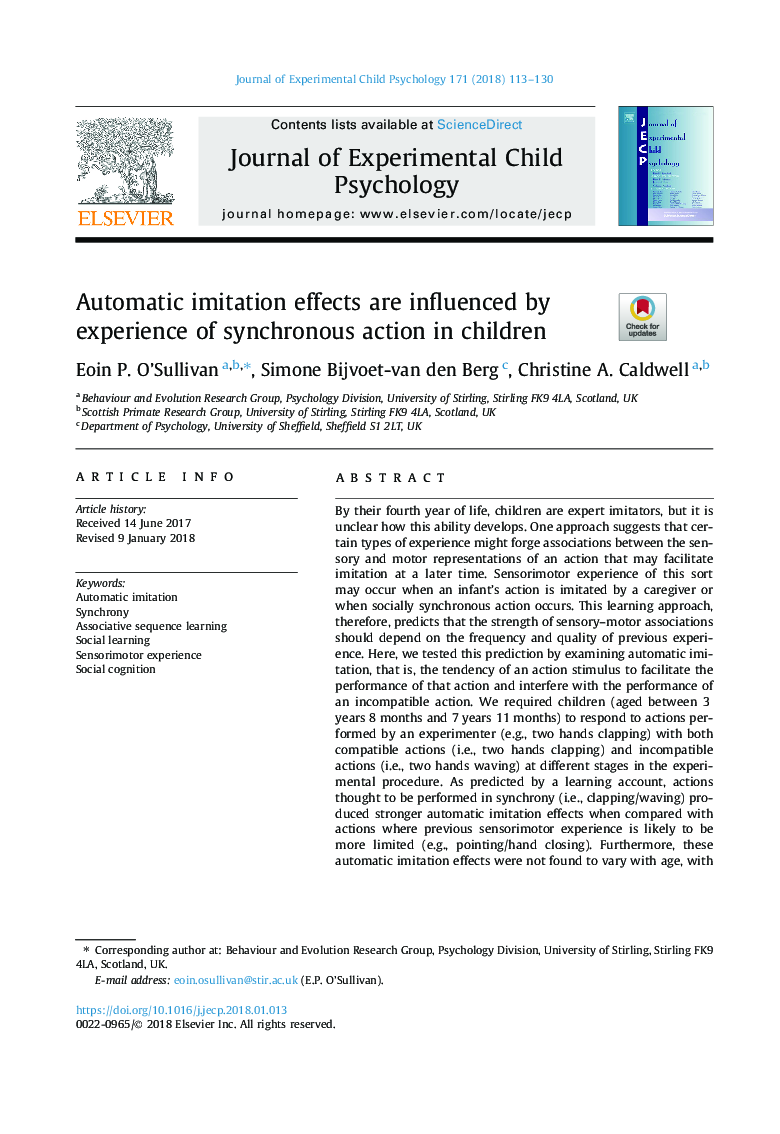| Article ID | Journal | Published Year | Pages | File Type |
|---|---|---|---|---|
| 7273970 | Journal of Experimental Child Psychology | 2018 | 18 Pages |
Abstract
By their fourth year of life, children are expert imitators, but it is unclear how this ability develops. One approach suggests that certain types of experience might forge associations between the sensory and motor representations of an action that may facilitate imitation at a later time. Sensorimotor experience of this sort may occur when an infant's action is imitated by a caregiver or when socially synchronous action occurs. This learning approach, therefore, predicts that the strength of sensory-motor associations should depend on the frequency and quality of previous experience. Here, we tested this prediction by examining automatic imitation, that is, the tendency of an action stimulus to facilitate the performance of that action and interfere with the performance of an incompatible action. We required children (aged between 3â¯years 8â¯months and 7â¯years 11â¯months) to respond to actions performed by an experimenter (e.g., two hands clapping) with both compatible actions (i.e., two hands clapping) and incompatible actions (i.e., two hands waving) at different stages in the experimental procedure. As predicted by a learning account, actions thought to be performed in synchrony (i.e., clapping/waving) produced stronger automatic imitation effects when compared with actions where previous sensorimotor experience is likely to be more limited (e.g., pointing/hand closing). Furthermore, these automatic imitation effects were not found to vary with age, with both compatible and incompatible responses quickening with age. These findings suggest a role for sensorimotor experience in the development of imitative ability.
Related Topics
Social Sciences and Humanities
Psychology
Developmental and Educational Psychology
Authors
Eoin P. O'Sullivan, Simone Bijvoet-van den Berg, Christine A. Caldwell,
